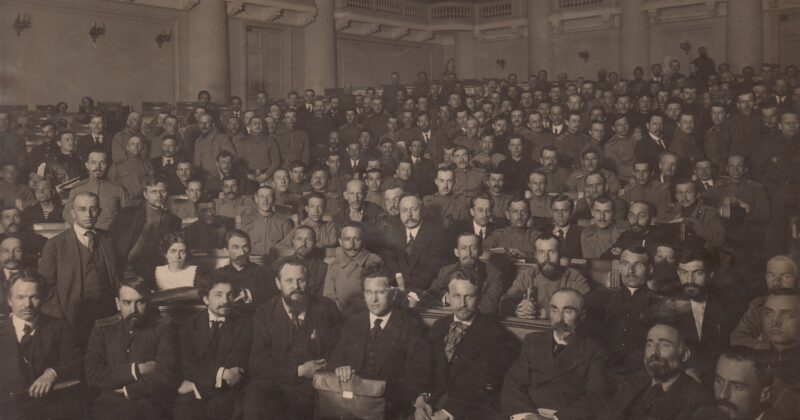1917 October Revolution
What are workers’ councils?
The significance of the soviet form of organisation and what its legacy means for working class militants today.
Red October: The working class takes power
IN THE February Revolution of 1917, the workers and soldiers of Petrograd rose in spontaneous revolt against the hardships caused by two and a half years of war. Civilians were verging on starvation, while those fighting suffered horrendous losses – 1.5 million had been killed, five million wounded, with millions more taken prisoner. Demonstrations by […]
The renewal of Bolshevism: Lenin’s April Theses
Lenin’s April Theses, at 479 words one of the shortest of his major works, represented a qualitative advance in his strategic thinking, effected a transformation of the Bolshevik Party’s programme and formed the blue print for the victorious October Revolution that, in turn, changed the world. Nonetheless, the theses built on the previous achievements of […]
The Bolsheviks and the revolutionary struggle for Women’s Liberation
By Joy Macready The 1917 Bolshevik government advanced a revolutionary programme for women’s rights, struggling to break with the backwardness and prejudice of Russia. The Bolsheviks argued that for women to be liberated, they would have to be relieved of their semi-slave status within the family. This would only happen if the state, now based […]
The Bolsheviks, the Red Army and the Civil War in Russia
In 1917 the working class took power in Russia with remarkably little resistance from the bosses. But shortly afterwards the capitalists regrouped and gathered support from the imperialist powers to wage a bloody war on the young communist regime that became known as the Russian Civil War. Ninety years ago in 1919 was a key […]

